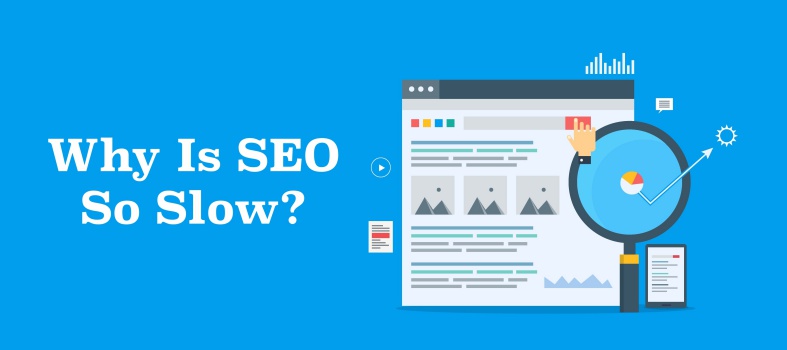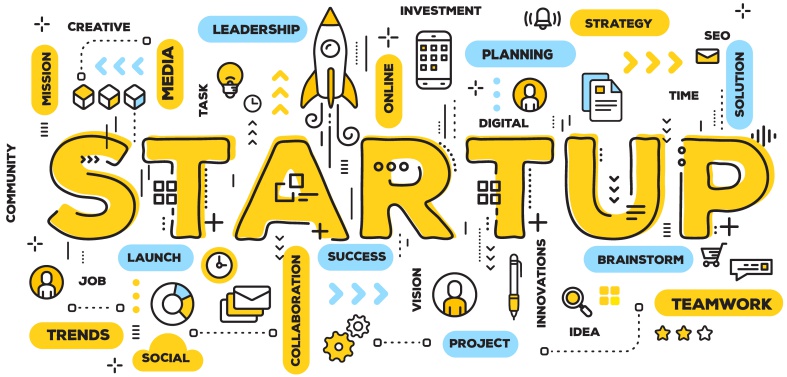SEO isn’t for amateurs.
Not because it’s difficult to learn – you can immerse yourself in the theory and find out the right techniques to gain higher rankings in a very short space of time. It’s easy to put together a piece of content that contains words which exactly match your target group’s search terms. The phrase, ‘SEO isn’t for amateurs’ has a very different meaning in this article. An amateur represents a startup, especially a startup which insists that SEO takes priority. SEO is not designed for amateurs; it has an extremely slow feedback loop. No startup has the luxury of taking things slow.
In fact, new websites usually need to wait months if not years for a high position on the search engine listings. The majority of sites require 3 to 5 years to climb the ladder to the top fifty. Even though many agencies promise a much quicker climb, articles and blog posts actually perform better as they age. This age can be anywhere from 3 months and up before they start to perform well in an organic search. It’s the ‘and up’ part that’s the problem. This period can stretch on for years. And in the digital world, we don’t tend to think in years anymore.
Get It Done Yesterday
We think in weeks. Months at most. How can my startup get through the next two months? How do I get X new clients in the next X weeks? Years? Very few startup owners have the scope to think that far into the future. Even when ‘long-term’ is our goal. Long-term isn’t just a goal, it’s an essential. But when it comes to SEO, we expect it to make an impact from the moment the first set of keywords is published online. We want results now. We want the monthly subscription, not the life-time membership.
There’s something in this. If you can’t make it through the next couple of months, how the hell are you supposed to plan for the long-term? But SEO doesn’t work to our rapid time-scale. It is notoriously slow in getting the results we want. All you need to do is compare it with other marketing tactics: newsletters, email campaigns, blogs, vlogs, adverts, social media posts. These can deliver results in days, if not minutes. While SEO trundles along (quite happily) behind them.
Why Is SEO So Slow?
So why does SEO take so long to get results? And if it takes so long, why is it so important?
The most important answer to this question is that all search engine rankings are determined by algorithms and not humans, and that these algorithms need long-term data.
No flesh and blood expert decides where you rank. It’s all maths. There’s no particular choice of words that make a staff member at Google sit up and say, “Hey, nice one”, and give you a few extra points. Even if we can understand this math, we still have to wait for the results because the algorithms that guide a Google search did not themselves happen overnight. They are the results of years of tracking, years of law-making, and years of making links to positive and negative webpage traits. Each search engine has its own list of quality-control indicators. This is basically data that tells the computer that there may be quality in what is written.
Unfortunately (or fortunately for some), the computer isn’t human and isn’t likely to become like one for many decades. It severely lacks many aspects of human perception. This means that some of the best content is left on page twenty, while a lot of useless ‘crap’ sits in the top three. Search engine fines are trying to limit this state of affairs, but once again AI is used to decide what should be fined. This also has its limits. Without a human sitting at a computer and going through every piece of content with a set of fluorescent highlighters, SEO is just plain maths. It might be improving at a rapid rate, but it still can’t be compared with human instinct.
Catch-22
This use of algorithms is dependent on more than a list of keywords. With computer algorithms becoming more and more complicated and ever more indicative of what is really good and what isn’t, what actually guides them is human. Most of these indicators are based upon user or visitor feedback. The search engine algorithm gives extra points for high numbers of visitors, because it can then judge better whether the page or article is interesting or valuable. You will notice the catch-22 here. It’s impossible for a new website to climb the search engine rankings at speed because there aren’t enough visitors to provide the data the algorithm requires. The more visitors you get, the higher you rank. The more positive data your website generates for the search engine, the higher it will rank you. A new website means not many visitors, not much data, and low search engine ranking.
It’s the chicken and the egg. You want to score high on search engine rankings to get more visitors, but you need lots of visitors to top the lists.
Is SEO Worth It For Startups?
So, is SEO worth it for startups?
Definitely. Absolutely. 100%. But it’s not the only method a startup should be using to get more traffic. It’s the longer-term solution that will drive your startup towards the future, but it needs a serious leg-up.
To make the most of SEO, startups also need to change any perception that SEO is implemented purely in order increase search engine ranking. Higher rankings should instead be seen as a ‘side-effect’, not a goal; higher rankings are a result of the journey towards your goal. Where your startup stands in the search engine listings are not the starting point for your SEO strategy. Every startup’s goal must be to increase its public.
But isn’t that what SEO is? A way to attract visitors?
Nope. Not for a startup. It’s one of many ways to bring in the crowds, but it is not the quickest and certainly not the best means in the first few months of your company’s life. The goal of SEO is to make the best content more available and visible for a (your) target group. It’s not keywords that make this content available, as keywords need months or years to make the average webpage visible on a search. It’s the startup’s ability to answer its target group’s questions (honestly and correctly), to include articles and products the target groups are interested in, to use other methods such as social media to increase traffic, and to rapidly become a trusted point of reference. A popular website needs to offer a service to a target audience that fulfills every one of its needs. Don’t concentrate on SEO as it trundles behind the many other methods of gaining popularity through high quality service.
A startup should concentrate its focus on short-term, immediate ways of building up a following. It must aim to create the best possible point of call for its particular target group(s) as soon as possible. In other words, a startup must become an expert in its field and not guard its knowledge. Its expertise is there to be shared.
Keep Them Coming Back
Creation of quality content is a double-edged sword, of course. Word of mouth is critical for startups, and works quickly. However, quality content is also rewarded at a slower pace by search engines. This means a startup simultaneously takes care of its future while concentrating on short-term goals. Slowly, but surely, the brand begins to climb every search engine list. By continuing to produce fresh, high quality content a snowball effect takes place: more visitors, more data, higher rankings. This effect won’t happen overnight, but it will happen. If it doesn’t, there’s something seriously wrong with the information that startup is sharing. Once visitors begin to accept a new website as an authority on their particular interest, they will return. Returning visitors score very high on any set of search engine algorithms and accelerates the effect on any website’s ranking. For top rankings, the previously mentioned years can be shifted back to months. For those startups prepared to invest in high quantities of high-quality content, well-moderated forums, helpful social media presence and pure expertise, that plural ‘months’ might even become singular.
Time Will Tell
SEO is the equivalent of a calorie-controlled diet. Even if you do it right, you won’t see the results until you’ve been doing it right for a few weeks. The longer you stick to it, the better the results. You might also compare SEO with starting at the gym. It takes a while to reap the rewards, but after a time you’ll start to notice the six-pack. If your startup will be implementing this particular SEO philosophy, how about taking a ‘before and after’ shot? So for the startup website, SEO should never be seen as a goal in itself. Your goal is simple and singular: to build up a user base who consider you to be the authority in your field. SEO is the by-product of this goal. Solely basing your success, certainly in the first months, on SEO has no value. Changing your outlook on how SEO should be implemented will not only reap rewards in the short-term, but for your business’ entire lifecycle.


 1300 353 700
1300 353 700 info@magiknewmedia.com.au
info@magiknewmedia.com.au


















